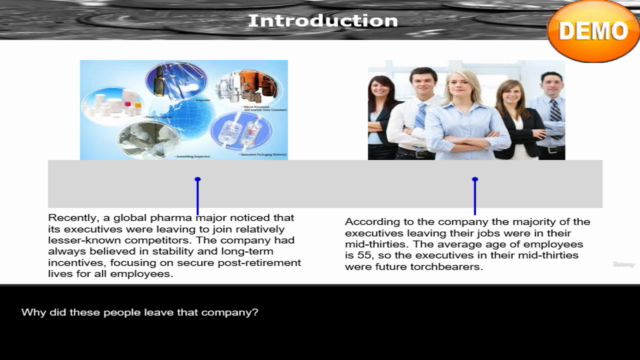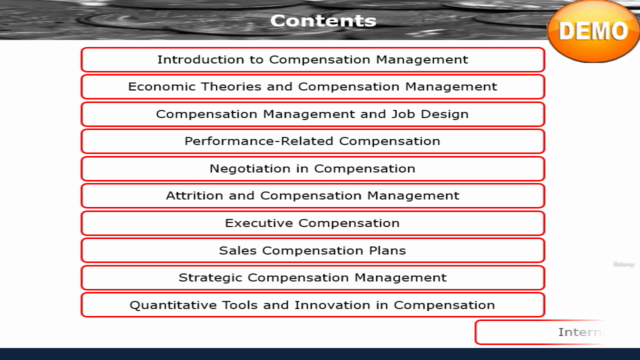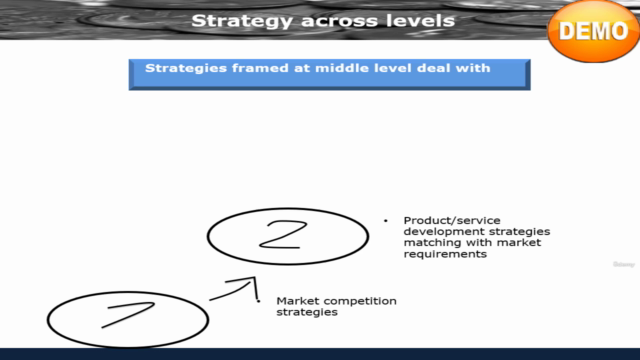Compensation Management

Why take this course?
🎓 Mastering Compensation Management: A Strategic Approach
🚀 Course Headline: Unlock the Secrets of Effective Compensation Strategy with Our Expert-Led Course!
Introduction to Compensation Management: Compensation is a critical component of human resource management, representing both a significant portion of organizational expenditure and a primary motivator for employees. In this course, we delve into the strategic management of wages and salaries, exploring the principles of internal and external equity that form the backbone of compensation management.
📈 Key Course Objectives:
- Understand the concept of compensation as a strategic tool within an organization.
- Learn how to achieve and maintain internal and external pay equity.
- Examine the relationship between pay and performance, and how it impacts efficiency and productivity.
- Analyze the influence of market rates and economic conditions on salary levels.
- Explore the role of compensation in the broader context of the economy.
Course Content Breakdown:
🔹 Core Decisions in Compensation Management:
- Pay Level: Determining the overall competitive level of pay within the organization and the market.
- Pay Structure: Establishing the framework for differentiating between roles, levels, and responsibilities.
- Pay System: Implementing the mechanisms to deliver compensation effectively and fairly.
🔹 Additional Considerations:
- Pay Form: Assessing the various forms of compensation, including salary, bonuses, stock options, etc.
- Pay Treatment for Special Groups: Addressing unique compensation needs for roles such as executives, sales teams, or remote workers.
- Pay Administration: Managing the day-to-day aspects of compensation, including processing, communication, and compliance with legal requirements.
Environmental and Organizational Factors: The decisions made in compensation management are influenced by a multitude of variables, both within the organization and the broader economic and social landscape:
- Economic Environment: Macroeconomic factors such as inflation rates and employment levels.
- Social/Cultural Environment: Social trends, cultural shifts, and demographic changes.
- Legal Environment: Labor laws, regulations, and legal constraints on compensation practices.
- Organizational Structure and Workforce: The company's size, industry, and internal hierarchy.
Dynamics of Compensation in a Global Context: As the world becomes increasingly interconnected, compensation decisions are further complicated by the global economy. Factors such as international competition and the influence of global talent pools must be considered. Additionally, embracing diversity and inclusion is paramount when making compensation decisions to ensure fairness and attract top talent.
Incentive Theory & Its Application: Understanding the dynamics of motivation through theories like Vroom's Valence Instrumentality Expectancy (VIE) can provide insights into how employees are driven by incentives. We will explore how to design effective incentive and bonus schemes that clearly link effort to reward, ensuring that your compensation strategy not only attracts but also retains top-performing employees.
Why Take This Course? This course is designed for HR professionals, managers, and business leaders who are looking to enhance their understanding of compensation management and its strategic importance. By completing this course, you will gain the skills and knowledge necessary to develop a comprehensive compensation strategy that aligns with your organization's goals and supports your workforce in achieving peak performance.
📆 Enroll Now and embark on your journey to mastering compensation management, ensuring your organization remains competitive and attractive to top talent in today's fast-paced, ever-changing job market. Let's unlock the potential of your workforce with strategic compensation decisions! 🚀
Course Gallery




Loading charts...